Origins of the Borzyskowski / Borzyszkowski Name
By Andrzej Borzyskowski
| Website URL: | http://www.andrzejb.net |
|---|---|
| E-Mail: | info@andrzejb.net |
I can trace all sides of my family tree unbroken to the 19th century (1800s), though can trace the origins of my surname ‘Borzyskowski’ to the 14th century (1300s). ‘Borzyskowski’ is a variant of ‘Borzyszkowski’ (note the extra ‘z’) - my family used the name ‘Borzyszkowski’ (with the ‘z’) pre-World War II.
The Borzyszkowski name derives from the village of Borzyszkowy, situated in the Kaszuby region of northern Poland. Whoever hailed from Borzyszkowy took on the toponymic name ‘Borzyszkowski’ (the ‘ski’ meaning coming from a certain place - in this case coming from Borzyszkowy).
According to the Borzyszkowski article on the Polish version of Wikipedia, Borzyszkowski was a Kaszubian minor-nobility family (also see the Borzyszkowski index page on the Polish version of Wikipedia here). It states that the earliest documented mention of the name occurred in 1352 when Ludolf Hake, the commander of the county of Człuchow, conferred the ownership of the village of Borskow (Borzyszkowy) to Jan Szade and his heirs. It further states that in 1552 Polish King Zygmunt II August confirmed the rights of the Borzyszkowski family to the village of Borzyszkowy.
The Borzyszkowski name is also associated with the Battle of Grunwald that took place in the year 1410. King Władysław II Jagiełło successfully led the combined Polish and Lithuanian forces into victory over the Knights of the Teutonic Order. There was a captain in Jagiełło’s army named Jakub Borzyszkowski. Jakub distinguished himself in the battle and as a result was rewarded with nobility status and 5000 hectares of land (see scans at the bottom of the page from the book Bedeker Kaszubski for Polish text and English translation).
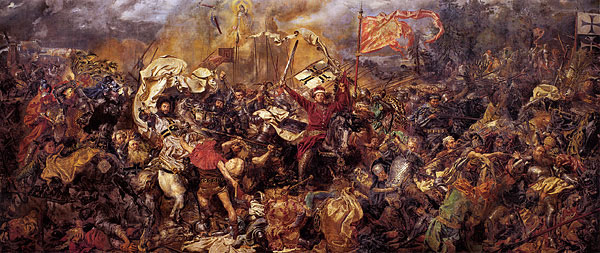 |
| Bitwa pod Grunwaldem by Jan Matejko, 1878, oil on canvas, 426cm x 987cm, National Museum, Warsaw. |
|---|
The name of the village Jakub was rewarded was Jabłuszek Duży, which is just east of Borzyszkowy. Jabłuszek Duży is the second Borzyszkowski familial home after Borzyszkowy and from which the family branch Wyszki - Fiska originates (other variants of the name include Fiszka or Fiske). According to Bedeker Kaszubski Jakub Borzyszkowski possessed four prenames: Fiska, Dunous, Sady and Witek.
The Borzyszkowskis used/adopted various coats of arms: Sas, Prawdzic, Szeliga, Łodzia and variants.
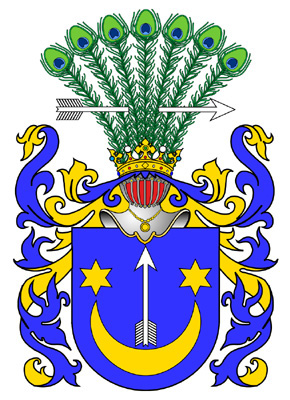 |
| Herb Sas. |
|---|
The Borzyszkowski coat of arms article on the Polish version of Wikipedia displays two coats of arms (see images below) that are derived from the Sas coat of arms (see image above). Also see the articles Lew II (Borzyszkowski II), Borzyszkowski III and Borzyszkowski IV.
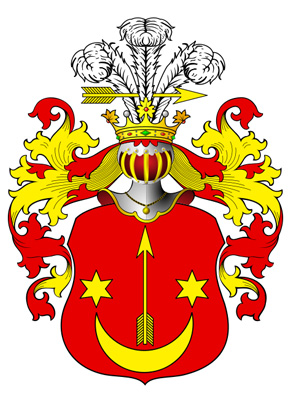 |
| Herb Borzyszkowski, basic version. |
|---|
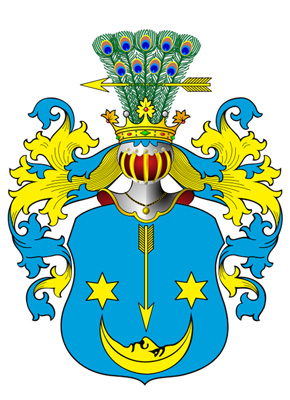 |
| Herb Borzyszkowski, variant. |
|---|
The Fiska Borzyszkowski coat of arms, which also derives from the Sas coat of arms, can be seen above the pulpit in the Borzyszkowy parish church together with coats of arms of three other benefactors. A website about the parish church displaying photographs of these coats of arms is unfortunately no longer online. The article The Inside Story by Peter von Pazatka Lipinsky however, details that there are actually five crests displayed altogether inside the Borzyszkowy parish church. He also gives a different name for the ‘F’ initial in the FB crest. This article is also unfortunately no longer online.
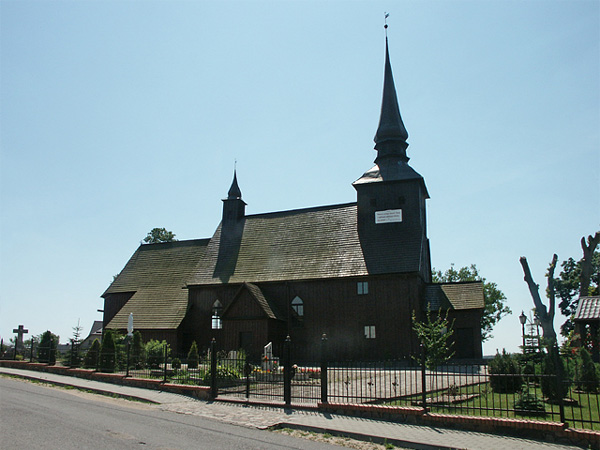 |
| Parish church in Borzyszkowy. Photograph by Jerzy Borzyskowski © 2006. |
|---|
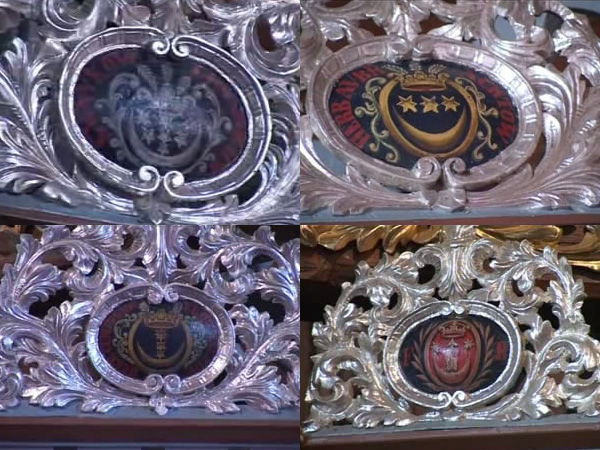 |
| Crests inside the parish church - with the Fiska Borzyszkowski crest on the bottom right. Screenshots taken from the film Perełka w Borzyszkowach (no longer online). |
|---|

The Fiska Borzyszkowski crest includes a crescent moon, an archer’s arrow with two stars on each side, and a crown on top. It’s an oval shape and bears the initials FB - Fiska Borzyszkowski (see image above).
I have heard that Fiska could mean ‘fish’ (ryba) or ‘to fish’. Fiska translated into German would be Fischer. I have also heard that in the 19th century, at a time during the partition period, my family may have been known as Borzyszkowski von Fischer.
My Borzyszkowski ancestors must have lived in the area near the village of Borzyszkowy and surrounding areas for generations up until the outbreak of World War II. My grandfather Bronisław ‘Bronek’ Borzyszkowski was born in Swornegacie on the north side of lake Karsińskie, which is just south of Borzyszkowy. He spent most of his youth on his family’s farm in the village of Lubieszyn, which is east of Borzyszkowy. Other branches of my family were based in the village of Borzyszkowy and Wieck (see map below).

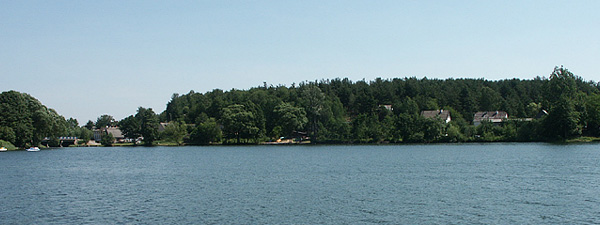 |
| Lake Karsińskie, Swornegacie. Photograph by Jerzy Borzyskowski © 2006. |
|---|
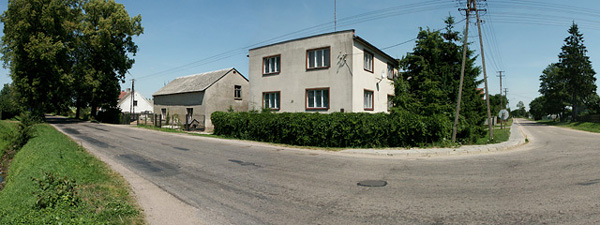 |
| Lubieszyn. Photograph by Jerzy Borzyskowski © 2006. |
|---|
My family surname changed from Borzyszkowski to Borzyskowski (lost the ‘z’) just after the end of World War II when my grandfather Bronisław, a member of Major General Stanisław Sosabowski’s 1st Polish Independent Parachute Brigade, resettled in the United Kingdom. This name change was probably due to ease of pronunciation. In my opinion ‘Borzyskowski’ is a bit easier to say than ‘Borzyszkowski’. Letters written immediately after World War II addressed to my grandfather in the United Kingdom from his father Franciszek Borzyszkowski who was still in Poland, definitely had Borzyszkowski spelt with a ‘z’. My grandfather’s Polish army ID card also had the surname spelt with a ‘z’.
Polish language Borzyszkowski history information from the book Bedeker Kaszubski by Róża Ostrowska and Izabella Trojanowska, Wydawnictwo Morskie, Gdańsk, 1978:
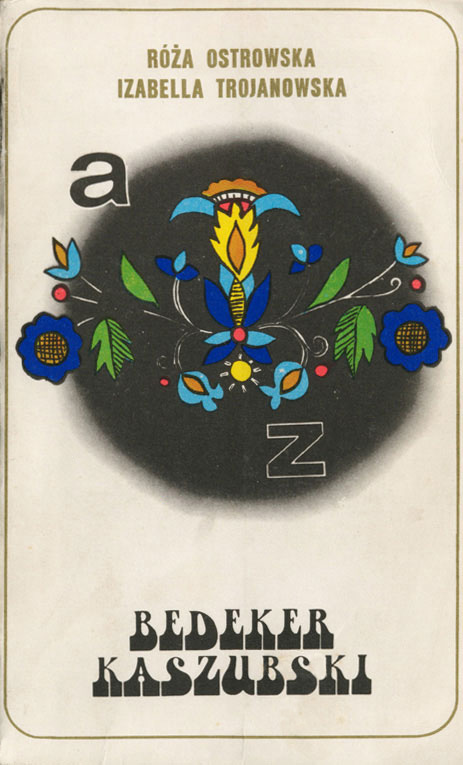
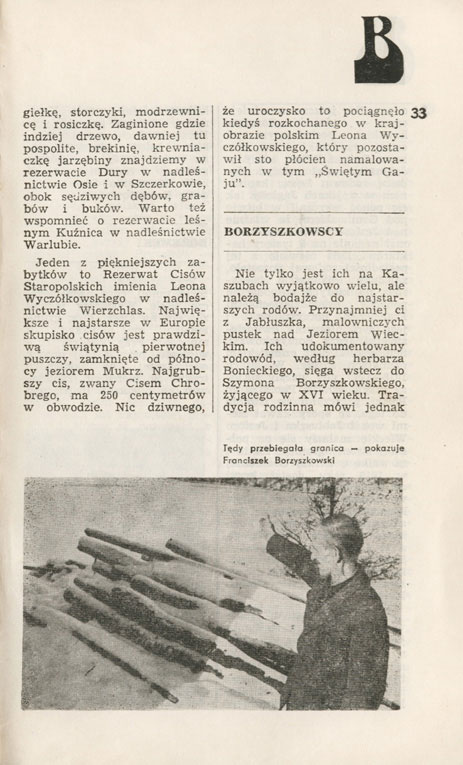
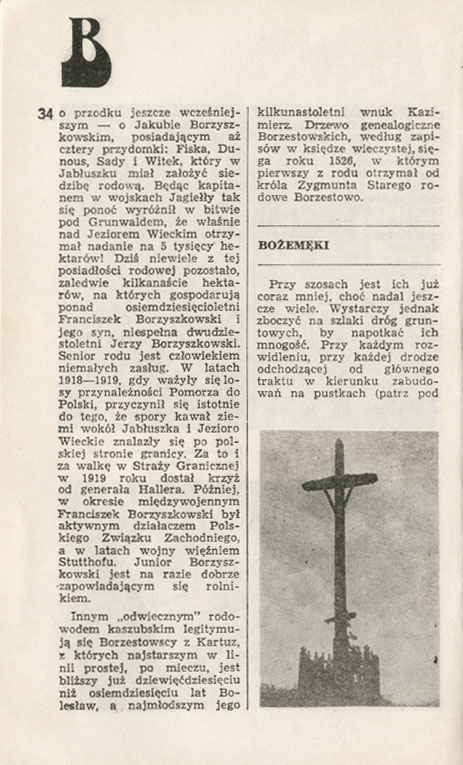
English translation of the Borzyszkowski history information from the book Bedeker Kaszubski by Róża Ostrowska and Izabella Trojanowska, Wydawnictwo Morskie, Gdańsk, 1978:
THE BORZYSZKOWSKIS
Not only are they particularly numerous in the Kaszuby region, but they also are among the oldest families. At least those from Jabłuszko, a beautiful wilderness around lake Wieckie. Their documented family tree, according to Boniecki’s Armorial History, reaches back to Szymon Borzyszkowski living in the 16th century. Tradition however, relates an even earlier ancestor - Jakub Borzyszkowski the bearer of four agnomens (names given to honour achievement): Fiska, Dunous, Sady and Witek; who was to establish a family seat at Jabłuszko. As a captain in Jagiełło’s army, he so distinguished himself at the Battle of Grunwald that he was granted 5000 hectares around lake Wieckie! Today, under 20 hectares remain of the estate on which octogenarian Franciszek Borzyszkowski farms with his 20 year old son, Jerzy Borzyszkowski. As senior of the family he is a man of no mean achievement. In the years 1918-1919, when the status of Pomorze becoming a part of Poland was in the balance, he was instrumental in ensuring that substantial lands in the vicinity of Jabłuszko and lake Wieckie were located on the Polish side of the border. For that and his active service in the Border Guard in 1919 he was awarded a military cross from General Haller. Later during the inter war years Franciszek Borzyszkowski was an activist in the Western Poland Association and during World War II was a prisoner of war at Stutthof. Junior Borzyszkowski for now is a promising agriculturist.
A further ancient line of the family are the Borzestowskis of Kartuzy of whom the current oldest direct descendant is, now closer to 90 than 80 years old, Bolesław, and the youngest, his teenage grandson Kazimierz. The Borzestowski family tree reaches back to 1526 when King Zygmunt I Stary granted the first of the line, the family seat of Borzestowo.